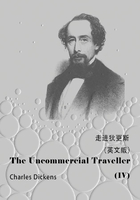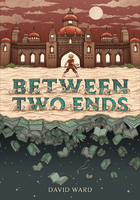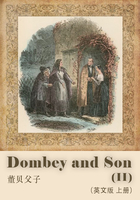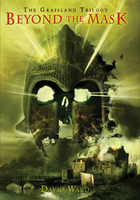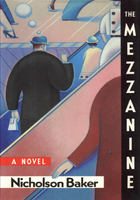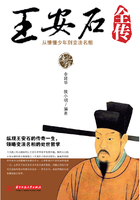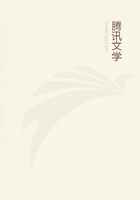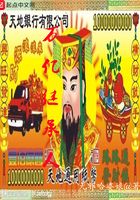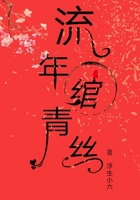THE sun shone, having no alternative, on the nothing new. Murphy sat out of it, as though he were free, in a mew in West Brompton. Here for what might have been six months he had eaten, drunk, slept, and put his clothes on and off, in a medium-sized cage of north-western aspect commanding an unbroken view of medium-sized cages of south-eastern aspect. Soon he would have to make other arrangements, for the mew had been condemned. Soon he would have to buckle to and start eating, drinking, sleeping, and putting his clothes on and off, in quite alien surroundings.
He sat naked in his rocking-chair of undressed teak, guaranteed not to crack, warp, shrink, corrode, or creak at night. It was his own, it never left him. The corner in which he sat was curtained off from the sun, the poor old sun in the Virgin again for the billionth time. Seven scarves held him in position. Two fastened his shins to the rockers, one his thighs to the seat, two his breast and belly to the back, one his wrists to the strut behind. Only the most local movements were possible. Sweat poured off him, tightened the thongs. The breath was not perceptible. The eyes, cold and unwavering as a gull's, stared up at an iridescence splashed over the cornice moulding, shrinking and fading. Somewhere a cuckoo-clock, having struck between twenty and thirty, became the echo of a street-cry, which now entering the mew gave Quid pro quo! Quid pro quo! directly.
These were sights and sounds that he did not like. They detained him in the world to which they belonged, but not he, as he fondly hoped. He wondered dimly what was breaking up his sunlight, what wares were being cried. Dimly, very dimly.
He sat in his chair in this way because it gave him pleasure! First it gave his body pleasure, it appeased his body. Then it set him free in his mind. For it was not until his body was appeased that he could come alive in his mind, as described in section six. And life in his mind gave him pleasure, such pleasure that pleasure was not the word.
Murphy had lately studied under a man in Cork called Neary. This man, at that time, could stop his heart more or less whenever he liked and keep it stopped, within reasonable limits, for as long as he liked. This rare faculty, acquired after years of application somewhere north of the Nerbudda, he exercised frugally, reserving it for situations irksome beyond endurance, as when he wanted a drink and could not get one, or fell among Gaels and could not escape, or felt the pangs of hopeless sexual inclination.
Murphy's purpose in going to sit at Neary's feet was not to develop the Neary heart, which he thought would quickly prove fatal to a man of his temper, but simply to invest his own with a little of what Neary, at that time a Pythagorean, called the Apmonia. For Murphy had such an irrational heart that no physician could get to the root of it. Inspected, palpated, auscultated, percussed, radiographed and cardiographed, it was all that a heart should be. Buttoned up and left to perform, it was like Petrouchka in his box. One moment in such labour that it seemed on the point of seizing, the next in such ebullition that it seemed on the point of bursting. It was the mediation between these extremes that Neary called the Apmonia. When he got tired of calling it the Apmonia he called it the Isonomy. When he got sick of the sound of Isonomy he called it the Attunement. But he might call it what he liked, into Murphy's heart it would not enter. Neary could not blend the opposites in Murphy's heart.
Their farewell was memorable. Neary came out of one of his dead sleeps and said:
'Murphy, all life is figure and ground.'
'But a wandering to find home,' said Murphy.
'The face,' said Neary, 'or system of faces, against the big blooming buzzing confusion. I think of Miss Dwyer.'
Murphy could have thought of a Miss Counihan. Neary clenched his fists and raised them before his face.
'To gain the affections of Miss Dwyer,' he said, 'even for one short hour, would benefit me no end.'
The knuckles stood out white under the skin in the usual way – that was the position. The hands then opened quite correctly to the utmost limit of their compass – that was the negation. It now seemed to Murphy that there were two equally legitimate ways in which the gesture might be concluded, and the sublation effected. The hands might be clapped to the head in a smart gesture of despair, or let fall limply to the seams of the trousers, supposing that to have been their point of departure. Judge then of his annoyance when Neary clenched them again more violently than before and dashed them against his breast-bone.
'Half an hour,' he said, 'fifteen minutes.'
'And then?' said Murphy. 'Back to Teneriffe and the apes?'
'You may sneer,' said Neary, 'and you may scoff, but the fact remains that all is dross, for the moment at any rate, that is not Miss Dwyer. The one closed figure in the waste without form, and void! My tetrakyt!'
Of such was Neary's love for Miss Dwyer, who loved a Flight-Lieutenant Elliman, who loved a Miss Farren of Ringsakiddy, who loved a Father Fitt of Ballinclashet, who in all sincerity was bound to acknowledge a certain vocation for a Mrs. West of Passage, who loved Neary.
'Love requited,' said Neary, 'is a short circuit,' a ball that gave rise to a sparkling rally.
'The love that lifts up its eyes,' said Neary, 'being in torments; that craves for the tip of her little finger, dipped in lacquer, to cool its tongue – is foreign to you, Murphy, I take it.'
'Greek,' said Murphy.
'Or put it another way,' said Neary; 'the single, brilliant, organised, compact blotch in the tumult of heterogeneous stimulation.'
'Blotch is the word,' said Murphy.
'Just so,' said Neary. 'Now pay attention to this. For whatever reason you cannot love—But there is a Miss Counihan, Murphy, is there not?'
There was indeed a Miss Counihan.
'Now say you were invited to define let us say your commerce with this Miss Counihan, Murphy,' said Neary. 'Come now, Murphy.'
'Precordial,' said Murphy, 'rather than cordial. Tired. Cork County. Depraved.'
'Just so,' said Neary. 'Now then. For whatever reason you cannot love in my way, and believe me there is no other, for that same reason, whatever it may be, your heart is as it is. And again for that same reason—'
'Whatever it may be,' said Murphy.
'I can do nothing for you,' said Neary.
'God bless my soul,' said Murphy.
'Just so,' said Neary. 'I should say your conarium has shrunk to nothing.'
*
He worked up the chair to its maximum rock, then relaxed. Slowly the world died down, the big world where Quid pro quo was cried as wares and the light never waned the same way twice; in favour of the little, as described in section six, where he could love himself.
A foot from his ear the telephone burst into its rail. He had neglected to take down the receiver. If he did not answer it at once his landlady would come running to do so, or some other lodger. Then he would be discovered, for his door was not locked. There was no means of locking his door. It was a strange room, the door hanging off its hinges, and yet a telephone. But its last occupant had been a harlot, long past her best, which had been scarlet. The telephone that she had found useful in her prime, in her decline she found indispensable. For the only money she made was when a client from the old days rang her up. Then she was indemnified for having been put to unnecessary inconvenience.
Murphy could not free his hand. Every moment he expected to hear the urgent step of his landlady on the stairs, or of some other lodger. The loud calm crake of the telephone mocked him. At last he freed a hand and seized the receiver, which in his agitation he clapped to his head instead of dashing to the ground.
'God blast you,' he said.
'He is doing so,' she replied. Celia.
He laid the receiver hastily in his lap. The part of him that he hated craved for Celia, the part that he loved shrivelled up at the thought of her. The voice lamented faintly against his flesh. He bore it for a little, then took up the receiver and said:
'Are you never coming back?'
'I have it,' she said.
'Don't I know,' said Murphy.
'I don't mean that,' she said, 'I mean what you told me—'
'I know what you mean,' said Murphy.
'Meet me at the usual at the usual,' she said. 'I'll have it with me.'
'That is not possible,' said Murphy. 'I expect a friend.'
'You have no friends,' said Celia.
'Well,' said Murphy, 'not exactly a friend, a funny old chap I ran into.'
'You can get rid of him before then,' said Celia.
'That is not possible,' said Murphy.
'Then I'll bring it round,' said Celia.
'You mustn't do that,' said Murphy.
'Why don't you want to see me?' said Celia.
'How often have I to tell you,' said Murphy, 'I—'
'Listen to me,' said Celia. 'I don't believe in your funny old chap. There isn't any such animal.'
Murphy said nothing. The self that he tried to love was tired.
'I'll be with you at nine,' said Celia, 'and I'll have it with me. If you're not there—'
'Yes,' said Murphy. 'Suppose I have to go out?'
'Good-bye.'
He listened for a little to the dead line, he dropped the receiver on the floor, he fastened his hand back to the strut, he worked up the chair. Slowly he felt better, astir in his mind, in the freedom of that light and dark that did not clash, nor alternate, nor fade nor lighten except to their communion, as described in section six. The rock got faster and faster, shorter and shorter, the iridescence was gone, the cry in the mew was gone, soon his body would be quiet. Most things under the moon got slower and slower and then stopped, a rock got faster and faster and then stopped. Soon his body would be quiet, soon he would be free.

